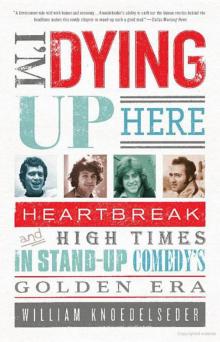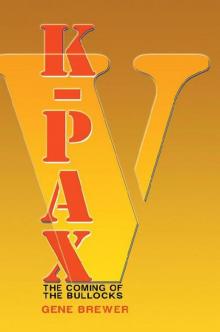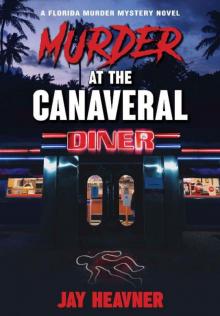I'm Dying Up Here: Heartbreak and High Times in Stand-Up Comedy's Golden Era


Author: William Knoedelseder
Category: Other
Published: 2010
Series:
View: 380
Read OnlineIn the mid-1970s, Jay Leno, David Letterman, Andy Kaufman, Richard Lewis, Robin Williams, Elayne Boosler, Tom Dreesen, and several hundred other shameless showoffs and incorrigible cutups from all across the country migrated en masse to Los Angeles, the new home of Johnny Carson’s Tonight Show. There, in a late-night world of sex, drugs, dreams and laughter, they created an artistic community unlike any before or since. It was Comedy Camelot—but it couldn’t last.William Knoedelseder, then a cub reporter covering the scene for the Los Angeles Times, was there when the comedians—who were not paid for performing—tried to change the system and incidentally tore apart their own close-knit community. In I’m Dying Up Here he tells the whole story of that golden age, of the strike that ended it, and of how those days still resonate in the lives of those who were there.From Publishers WeeklyStarred Review. In 1978, Knoedelseder (Stiffed: A True Story of MCA, the Music Business, and the Mafia) was a journalist assigned to cover newcomers transforming the comedy clubs: For the next two years, I had stage-side seats at the best show in show business.... I met and wrote about Jay Leno, David Letterman and Richard Lewis before the world knew who they were. Mitzi Shore, recently labeled the Norma Desmond of Comedy by the Los Angeles Times, took over L.A.'s Comedy Store in 1973 with a no-pay policy because she saw it as a training ground, a workshop, a college. It became a focal point for local comics, including Lewis, his friend Steve Lubetkin, Elayne Boosler, Tom Dreesen, Letterman, Leno and many more. Some were in desperate circumstances, surviving by living in their cars and eating bar condiments. Driving a silver Jaguar to her massive, cash-generating laugh factory, Shore was seen as cunningly manipulative, and her unfair payment policies led to an organized strike in 1979 by the CFC (Comedians for Compensation). This confrontation of comics vs. club owner (Not... one... red... fucking... cent) is the core of the book, with the suicide of Lubetkin taking the tone from comedy to tragedy. Filmmakers will eye this as a potential property similar to Bill Carter's The Late Shift (1996), about Letterman and Leno. Knoedelseder skillfully layers powerful dramatic details, and readers will shelve the book alongside those other key classics on comedy: Steve Allen's The Funny Men and Janet Coleman's The Compass. (Aug. 24) Copyright © Reed Business Information, a division of Reed Elsevier Inc. All rights reserved. ReviewPublishers Weekly, STARRED review“Knoedelseder skillfully layers powerful dramatic details, and readers will shelve the book alongside those other key classics on comedy.”Shelf Awareness“A revealing and entertaining look at the 1970s Los Angeles comedy scene and the labor dispute that ended its most glorious era.”Booklist“Fact-packed, highly readable history… peppered with plenty of portraits of struggling young comics, some destined for national fame, others headed to obscurity and, in a few cases, early death.”Buffalo News“One of the most eye-opening and informative books ever written about standup comedy…One of the books of the year for any student of American television and pop culture…A little-known story has now been told very well in perfect context. And when you finish the book you may feel as if you finally understand every comedian you see on TV for the first time.”Daily Variety“A lively new book…Knoedelseder reminds us that comedy is a dicey calling.”New York Times Book Review“Illuminating”Irish Times“Knoedelseder, who was around in those days as a reporter on the Los Angeles Times, interweaves the fascinating stories of the tragic, unknown Lubetkin and the performers who were to become household names, set against the basic contradictions of working the Comedy Store.”Dallas Morning News“Written with a journalist's strong narrative sense, I'm Dying Up Here chronicles the tight-knit community of artists who cracked open the world of funny entertainment and the event that shattered their camaraderie...Knoedelseder's ability to sniff out the human stories behind the headlines is what makes this rowdy chapter in stand-up such a good read. It's a bittersweet tale told with humor and economy.”DigitalCity.com“I’m Dying Up Here lays bare the bad and the ugly of Hollywood; from what good there was, like primordial muck, emerged the funniest guys and gals around.”
List Chapter or Page:
Page 1Page 2Page 3Page 4Page 5Page 6Page 7Page 8Page 9Page 10Page 11Page 12Page 13Page 14Page 15Page 16Page 17Page 18Page 19Page 20 View More >> Beta's Strength: An MMM Mpreg Romance (Irresistible Omegas Book 5)
Beta's Strength: An MMM Mpreg Romance (Irresistible Omegas Book 5) The Coming of the Bullocks
The Coming of the Bullocks Pragmatic Thinking and Learning
Pragmatic Thinking and Learning Murder at the Canaveral Diner (A Florida Murder Mystery Novel)
Murder at the Canaveral Diner (A Florida Murder Mystery Novel) Blood of my Blood
Blood of my Blood Frankie's Bride
Frankie's Bride The Place Where Love Should Be
The Place Where Love Should Be Nationality: A Case of Mistaken Identity
Nationality: A Case of Mistaken Identity